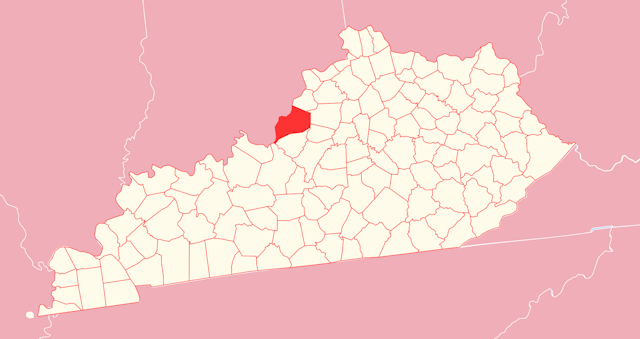Drug Rehabs in Louisville
Kentucky is always at the frontline of the fight against destructive addictions. Not only prescription painkillers but illegal weed abuse grips lives.
Rehabs in Louisville, KY professionally manage to accomplish its mission. They helped many families to restore their hope and wellness.
In this article, we gathered the information you should know before referring to them.
Drug Rehabs in Louisville, Kentucky
State leaders relaxed alcohol usage rules simultaneously making LOU an entertaining city. With overdose death cases KY ranked 4th. It seems that recovery centers follow regulation changes with alarm.
They advertise about themselves on the internet, in newspapers, and in clinics. Thus, they try to be accessible and visible for those who really need it․
Admission Process
Almost all the centers eased this step. First, what you must do is to decide that you want to change your lifestyle. Then you are to call them for a free consultation. During this you should:
- Share your story.
- Pass evaluation to determine the current stage of your situation. This consists of 2 levels:
- Evaluation with a doctor to ascertain critical psychiatric aspects and toxicology
- Deep examination
The purpose is to define a suitable treatment plan. In the end, you will receive a full written report of the results.
Get individualized recommendations based on the assessment.
Procedures
Due to experts’ effort therapies become a pleasure for patients. You can enjoy them personally or with groups in a peaceful and safe environment. Routine includes:
- Recovery coaching
- Medication-assisted healing
- Behavioral therapy
- 12-step recovery
- Relapse prevention
- Educational courses about disorders for men and women
- Meditation
- Detox
Upon refusing toxic substances you may go through setbacks. They affect psychological and physical health. You must detox your body under medical supervision. This ensures your adaptation to abstinence without bad consequences.
Aftercare
Returning home after cure you might have a desire towards drugs and alcohol. The aftercare gives willpower to never come back to abuse again. You will learn how to reject surroundings’ suggestions to take narcotics.
There you also practice how to withstand the pressure. This starts to be a ritual and an inseparable part of everyday life.
Facilities
What do they heal and what to expect there? These are common questions that arise for everyone. Here we compiled the diseases that the facilities treat:
- Drug and alcohol addictions
- Trauma
- Anxiety
- Depression
- Schizophrenia
- Eating disorders
There are the following treatment programs existing:
Inpatient or Residential
Let’s notice that people choose this program with therapists’ advice. You stay in a complex and can’t combine it with any other activity. This requires you to pay a lot of money. Especially, when selecting luxury conditions you have to pay at least $40000 per month.
Partial Hospitalization
In this case 1-3 days a week you are to spend under 24-hour control. The rest of the time you may continue your normal schedule.
Outpatient
This version is convenient for those who can not leave their jobs or education. Outpatient means that you participate in procedures out of the complex.
How to check my insurance coverage?
The coverage amount depends on your package policy. To check it, you are able to talk to your organization. They are to show the list of partners. Medicaid is also acceptable for low-priced projects.
Instructions for Parents
Some parents are not ready emotionally to put their teens into rehabilitation institutions. But, realize that your support is precious. It is the only way to encourage your child to begin a sober life.
Instead of force, you need to explain and persuade. Psychologists can prepare you for that. It is legal in KY to request another person’s involuntary healing. Casey’s new law allows that. Yet, the petitioner bears the responsibility for all costs.
Meanwhile, for low-income families, there are free or cheap options. On the governmental website, you will find a video guide and the necessary material.
Informative Assistance
The confidential hotline of SAMHSA offers a 24/7 referral service. Operators speak both English and Spanish.
Phone: 1-800-662-HELP (4357)
Email address: SAMHSAInfo@samhsa.hhs.gov
TTY: 1-800-487-4889

